Medical cannabis has been legal in New York since 2014, but the Marijuana Revenue and Taxation Act (S.854-A/A.1248-A) was only recently legalized by Governor Cuomo. Despite progress toward expanding access to cannabis in the state, a regulatory framework has yet to be established. Adults 21 years and older can currently possess up to 3 ounces of cannabis and up to 24 grams of concentrated cannabis oil, but it may be some time before recreational dispensaries open up in the state.
Regulating Entities
Three entities will oversee the state’s adult-use cannabis program: The Office of Cannabis Management, the Cannabis Control Board, and the Office of Court Administration. The Office of Cannabis Management is responsible for managing the programs for recreational and medical cannabis, while the Cannabis Control Board will be regulating licenses, ensuring security measures are met, and is entitled to formulate more restrictions. The Office of Court Administration will immediately begin the expungement process, but it could take up to 2 years to complete.
Marijuana Revenue and Taxation Act
New York’s Marijuana Revenue and Taxation Act (MRTA) establishes multiple cannabis business license types, including:
- Cannabis Cultivator
- Cannabis Processor
- Cannabis Distributor
- Cannabis Retail Dispensary
- Cannabis Micro-Business
- Cannabis Delivery Service
- Cannabis Nursey
- Small Business Cooperative
- Registered Organization
- Adult-Use On-Site Consumption
Unlike other states, New York has a provision within the MRTA that protects individuals from discrimination or punishment from employers if an employee uses cannabis in a lawful manner while off-duty. While employers can still test employees or potential employees for cannabis use, employers will not be able to make hiring decisions based on the results of a drug test.
The MRTA establishes a 9% state excise tax at the retail level and a local excise tax rate of 4% of the retail price. Counties would receive 25% of the local retail tax revenue and municipalities would receive 75%.
New York’s Social Equity Program
A social and economic equity program in the state is planned to facilitate individuals disproportionally impacted by cannabis enforcement. This social and economic equity program includes a goal of issuing 50% of licenses to minority or woman owned business enterprises, distressed farmers, or service-disabled veterans to encourage participation in the New York cannabis industry.
Future of the New York Cannabis Market
Although it is currently generally legal to use cannabis anywhere where tobacco use is allowed, smoking cannabis products is prohibited on public transport, bars, and public parks. Additionally, smoking cannabis products in vehicles is prohibited at all times, even when the vehicle is parked. New York is also working on creating on-site consumption sites.
Governor Cuomo believes that recreational cannabis businesses could potentially create 60,000 new jobs in New York. Additionally, the legal market could generate $3.5 billion and contribute to $300 million in tax revenue. Though the state has yet to establish a regulatory framework yet, further guidance is coming soon.
How Can Sapphire Risk Help?
Tony Gallo and the team of application writers and consultants at Sapphire Risk Advisory Group have worked extensively in the State of New York. Follow us on social media to stay up to date with New York cannabis industry updates!
- California Senate Bill 69 Adds CEQA Requirements for New Cultivators

- Top 5 Cannabis Security and Surveillance Violations
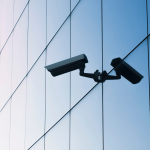
- Peace of Mind in the Retail Sector: Facility Security

- Opportunities in the Ohio (O-High-O) Cannabis Market
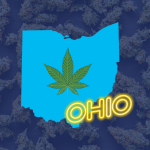
- Building Security and Trust: Verifying Identification and Payments

- The Importance of Loss Prevention
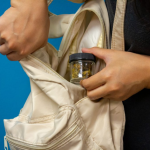
- Thoughts to Improve Cannabis Security Regulations Across the Nation

- Opportunities in the Minnesota Cannabis Market
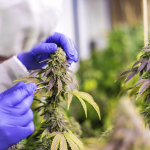
- U.S. Cannabis Legalization 2023 Update
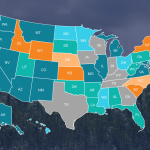
- How to Present Your Cannabis Business Vision to Your City


